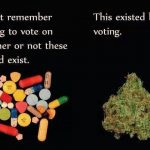Source: Altering Perspectives
A new study by The University of South Florida has found that low doses of the active ingredient in magic mushrooms repairs brain damage caused by extreme trauma, offering renewed hope to millions of sufferers of PTSD (Post-Traumatic Stress Disorder).
The study confirms previous research by Imperial College London, that psilocybin, a naturally occurring compound present in “shrooms”, stimulates new brain cell growth and erases frightening memories. Mice conditioned to fear electric shock when hearing a noise associated with the shock “simply lost their fear”, says Dr. Juan Sanchez-Ramos, who co-authored the study. A low dose of psilocybin led them to overcome “fear conditioning” and the freeze response associated with it faster than the group of mice on Ketanserin (a drug that counteracts the receptor that binds psilocybin in the brain) and a control group on saline.
An estimated 5 percent of Americans – more than 13 million people – have PTSD at any given time, according to the PTSD Alliance. The condition more often associated with combat veterans, is twice as likely to develop in women because they tend to experience interpersonal violence (such as domestic violence, rape and abuse) more often than men.
PTSD is not just psychological. Common symptoms, such as hyper-vigilance, memory fragmentation, flashbacks, dissociation, nightmares and fight or flight responses to ‘triggers’, are generally thought to be psychological and therefore treatable by learning to change thought processes. But new research suggests that they may in fact be the result of long term physiological mutations to the brain.
In the South Florida University study, the mice treated with low doses of psilocybin grew healthy new brain cells and their overactive medial prefrontal cortex regions (common in PTSD sufferers) were restored to normal functionality.
Further independent studies (http://www.thedoctorwillseeyounow.com) have shown that the hippocampus part of the brain is damaged by extreme stress and that this is specific to PTSD and not associated with anxiety or panic disorders.
Dr. Sanchez-Ramos acknowledged that there was no way of knowing whether the mice in the experiment experienced altered states of consciousness or hallucinations – commonly experienced with magic mushrooms, but he believed the doses were too low to cause psychoactive effects.
Decriminalisation of psilocybin could help millions
Previous studies have shown that low doses of psilocybin produce no consciousness state altering effects. Administered in the correct amount, psilocybin could therefore be assumed to safely treat PTSD with minimal risk of adverse side effects. Magic mushrooms could help millions recover from the debilitating cycles of fight and flight and other conditioned biological responses caused by extreme trauma, if only they weren’t listed as a dangerous Schedule 1 drug with no medical benefits.
Meanwhile, doctors are authorised to dispense powerful, side-effect laden pharmaceutical drugs to army vets and others suffering from the symptoms of PTSD without any evidence that these treatments actually work, according to a major review by the committee of theInstitute of Medicine on the topic.
The situation is so bad that an average of 18 American veterans commits suicide every day (http://www.naturalnews.com), linked to the sharp rise in prescription drugs, depression, and other psychological conditions. Safe, natural alternatives to pharmaceuticals such as homeopathic and herbal remedies have been found to alleviate symptoms (http://www.naturalnews.com). Meditation has also been shown to reduce high activity levels in the amygdala (the brain’s emotional centre) experienced in PTSD sufferers as anxiety, stress and phobias.
Sources used in this article:
http://www.thedoctorwillseeyounow.com
About the author:
Anna Bragga is a freelance journalist and owner of public relations company, Conscience Communications
[www.annabragga.com
>http://www.annabragga.com]




 Creative Commons Attribution
Creative Commons Attribution